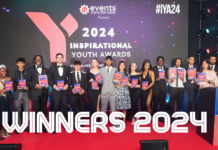A feature by Huffington Post Blogger Khadija Ahmed
Emotions run seventy years deep in the hearts of Indians and Pakistanis, so much so that the anguish has now spilt into the film industry. The killing in Kashmir of 17 Indian soldiers on the 18th of September by alleged Pakistani separatists is what caused the latest bout of aggression, resulting in the banning of Pakistani actors, singers and technicians from India and the boycott of Bollywood films in Pakistan.
Whilst some may argue that cinema is one of the strongest forms of dialogue that can go a long way in shaping public opinion and spreading a message of peace across the border, when it comes to patriotism, all avenues of peace are seemingly denied because at the end of the day none of this means more than ‘Jai hind’ and ‘Pakistan Zindabad’. But if Bollywood can surpass borders when it comes to art and cinema then why can’t politics look further than nationalism?

The Kashmir conflict is a devastating and excruciating battle, and every life lost on either side is a great loss for humanity. From it’s conception in 1947, when Maharajah Hari Singh decided for the region to remain neutral as the majority of the population was Muslim and he himself was a Hindu, until now where Kashmir has become the world’s most militarized zone, is a reminder that both sides have failed to co-exist and without a robust political solution, the dispute in Kashmir will continue to aggravate.
But wait, what’s Bollywood got to do with it? It seems as though no corner is untouched by the strong sense of patriotism on either side, whether its cricket, fashion or cinema the ‘us’ and ‘them’ paradigm is embedded within the attitudes of many.

Interestingly, I recently read two very direct open letters confronting the issue, one by an Indian journalist and the other by a Pakistani writer. Indian journalist Soumyadipa Banerjee also known as the ‘Bollywod journalist’ directed his letter to popular Pakistani actor Fawad khan, requesting him to return to Pakistan, in his letter he says:
“Sorry Fawad, cultural exchanges cannot happen over dead bodies of our soldiers. We cannot shake hands with your country when their hands are covered in blood of our own countrymen.
Soumyadipa Banjree constantly mentions the amount of money India has invested in Fawad. He says “We have given you more money in two years than what you could have possibly earned in Pakistan in 10 years.”
Unsurprisingly a Pakistani writer Asif Nawaz responded to this with an open letter titled’ Dear India, our actors don’t need Bollywood to become stars.’
He says “India didn’t make Fawad Khan a superstar; it roped him in because he was one already, and marketed the product where the demand was brewing already.’
Both letters expressed a deep sense of loyalty to their nation, the constant use of ‘our nation’, ‘your country’, ‘our land’, ‘your people’, reinforced a strong ‘us and ‘them’ narrative. Although Bajree doesn’t represent the consensus of the 1.311 billion Indians and Nawaz, the 190 million Pakistanis, they both highlight an underlying theme: nationalism. This is the exact crux of the issue which lead to the banning of Pakistani actors form India and the boycott of Bollywood from Pakistan, and is the unfair result of what happens when Bollywood mixes with politics.
Dragging Bollywood into politics will only do more harm than good. The banning of actors won’t stop the blood which continues to drench the land; it will only prove to be a loss for the film industry in both countries.
Bollywood producer Rahul Aggarwal has quit his job at the Indian Motion Picture Producers Association following the ban of Pakistani actors. He says “art is above politics and we should use it as a means to bring people together.”
Popular Bollywood actor Salman Khan also condemned the decision: “They are artistes not terrorists. It’s the government who gives them permits and visas.”
Sadly, art doesn’t seem to surpass the brutal reality of politics. Bollywood is the world’s most prolific cinema factory, the industry produces around 1,000 films annually, about double that of Hollywood, and now with cultural exchange from Pakistan, it has admitted huge success.

If you are a Bollywood fanatic like me, you’ll be aware of the likes of Pakistani actors and singers in Bollywood who have recently been making it big in the industry. Actors such as Fawad khan, Mahira khan, Ali Zafar and singers such as Rahat Fateh Ali khan, Atif Aslam and Adnan Sami and many others are amongst the great Pakistani talents that have made a huge space in Indian hearts by being an extraordinary part of the Bollywood industry.
Many Indian actors have also flown to Pakistan to act in their drama serials such as Shewtea Tiwari, Alyy Khan and Sara Khan, who is currently shooting a new drama serial ‘Yeh kaisi Mohabbat Hai’ in Pakistan, plus many more.
Pakistani drama serials are favoured over Indian drama serials, and believe it or not, most Indians would agree! By her own admission, Shobhita Dutt, an Indian journalist blogs about the “15 Reasons Why Pakistani TV Serials Are Better Than Indian Ones.” By the same token, Bollywood films are by far better than Pakistani films, in fact Indian film industry and its stars have the biggest fan following in Pakistan than in any other part of the world. This only goes to show that both industries recognise the demand in the market and use it to their advantage, whether its Pakistani actors in Indian films or Indian actors in Pakistani films, business is business.
So dear Bollywood, please stay out of politics. It’s time to stop playing the blame game with those who aren’t even part of it. Let us enjoy the great films which you have and continue to create, if not for the sake of cultural exchange, bridging gaps or offering a hand in friendship, then do it for the sake of art, for the sake of your fans and mostly importantly for the sake of your business.
Khadija Ahmed
@ksahmedd


































